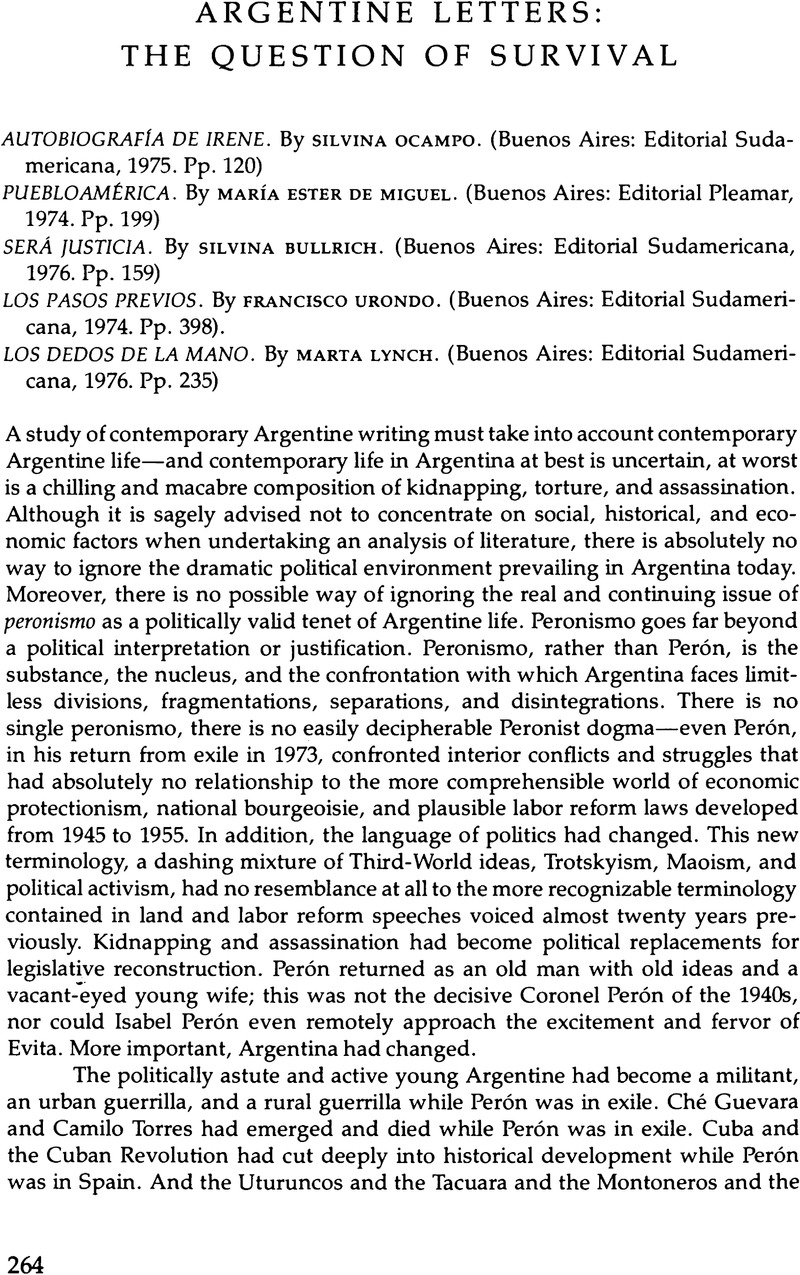No CrossRef data available.
Article contents
Argentine Letters: The Question of Survival
Review products
Published online by Cambridge University Press: 24 October 2022
Abstract

- Type
- Books in Review
- Information
- Copyright
- Copyright © 1979 by the University of Texas Press
References
Notes
1. For a penetrating interpretation of recent developments in Argentina see Donald C. Hodges, Argentina, 1943–1976 (Albuquerque: University of New Mexico Press, 1976).
2. For further information concerning language usage in violent political atmospheres see Ariel Dorfman, Imaginación y violencia (Chile: Editorial Universitaria, 1970), and the introduction to Literatura y revolución (México: Fondo de Cultura Económica, 1971) by Fernando Alegría.
3. Marta Lynch, El cruce del río (Buenos Aires: Editorial Sudamericana, 1972).
4. Francisco Urondo, Patria fusilada (Buenos Aires: Ediciones de Crisis, 1973).
5. Francisco Urondo, Adolecer (Buenos Aires: Editorial Sudamericana, 1968), p. 66.
6. Betrayed by Rita Hayworth (New York: Avon, 1973), translated by Suzanne Jill Levine, is a 1968 novel by Manuel Puig that concentrates primarily on the dull and plodding conditions of provincial life—movies and tedium seem to balance each other perfectly and merge as a superimposed and contrived little world of realities and fantasies. A major and almost singular concern of Puig's in this work is with technical narrative problems. Betrayed is certainly not one of his most convincing novels, thematically or stylistically. A more recent work, El beso de la mujer araña (Barcelona: Seix Barrai, 1977), also includes a cinematographic stylistic development as a background device, but this time there is a significant rupture with the theme of provincial life and aging starlets: El beso deals with the guerrilla movement in Buenos Aires and open homosexuality. The result is a provocative situation of clandestine and officially repressed activities—political and sexual—in Argentina. A rather poignant ineptness causes the death of the young homosexual involved quite by accident in guerrilla contacts. Like Marta Lynch, María Ester de Miguel, and Francisco Urondo, Manuel Puig demonstrates that all the lines and roles are handed out in advance; no one escapes.


